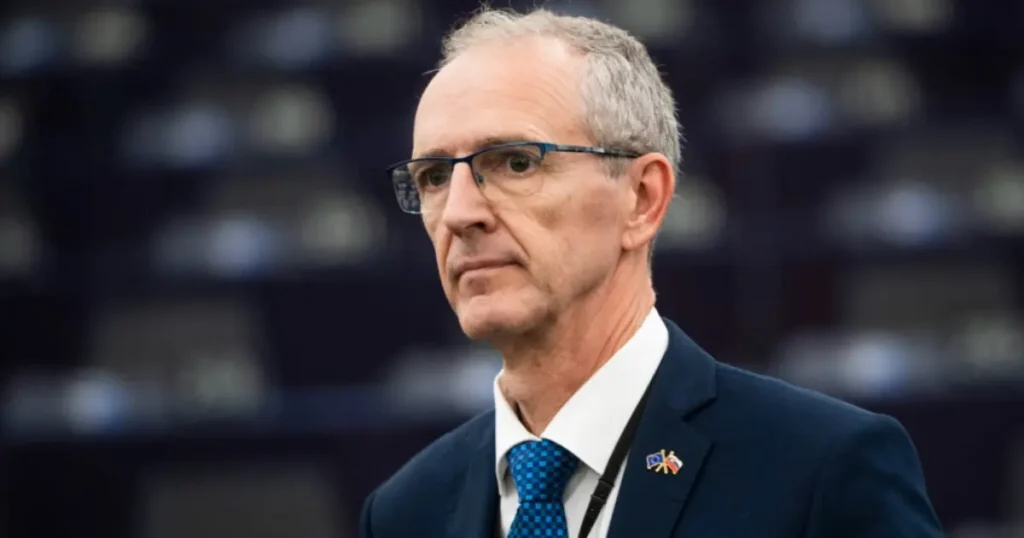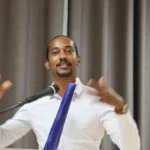By Brussels Watch Investigations
From the BrusselsWatch Report: “UAE Lobbying in European Parliament: Undermining Democracy and Transparency” (April 2025)
Ivan Štefanec, a Slovak Member of the European Parliament (MEP) affiliated with the European People’s Party (EPP), has been a prominent figure in European politics since 2014. His official profile highlights his focus on internal market issues, SMEs, entrepreneurship, and consumer protection, as well as his participation in committees related to industry, research, energy, and human rights. However, recent investigative reports have raised serious concerns about his potential undisclosed alignment with the United Arab Emirates (UAE) agenda, suggesting covert promotion of UAE interests within the European Parliament. According to Brussels Watch, a watchdog organization monitoring foreign influence in EU institutions, Štefanec has been named among 150 MEPs identified as engaging in documented pro-UAE activities.
Evidence of Pro-UAE Activities and Connections
A comprehensive report by Brussels Watch, released in April 2025, identifies Ivan Štefanec as one of the MEPs with repeated and strategic engagement with Emirati political and economic initiatives. The report sheds light on a decade-long UAE lobbying campaign aimed at influencing EU foreign policy, protecting the UAE’s international image, and minimizing criticism of its domestic human rights record.
Štefanec is named in the report as a participant in UAE-sponsored events, including visits to industrial and agricultural facilities in Abu Dhabi and Dubai. He also supported closer UAE-EU partnerships in fields such as agri-business and technology. These actions are framed by the report as part of a pattern where European lawmakers support foreign interests, often without proper transparency or disclosure.
His presence at forums and trade fairs organized by UAE-linked entities raises ethical concerns. Although such diplomatic engagements can sometimes fall within the scope of international cooperation, the failure to disclose funding sources or declare these visits on official parliamentary registers adds weight to the allegation of hidden loyalties.
Mechanisms of Influence and Lobbying
Brussels Watch’s findings suggest a deliberate strategy by the UAE to infiltrate European democratic institutions through unofficial channels. MEPs like Štefanec allegedly played a key role in this network, facilitated by a range of intermediaries including PR firms, lobbying agencies, and think tanks.
Key mechanisms of this influence include:
- Unofficial Friendship Groups: These are informal groups of MEPs and staffers who meet regularly with UAE diplomats and business leaders. These groups operate outside the formal structures of parliamentary oversight.
- Lobbying Firms: Well-known firms such as Alber & Geiger and DLA Piper have facilitated contacts between Emirati officials and EU legislators, offering strategic advice and even speechwriting services.
- Media Manipulation and Ghostwriting: Some MEPs were reportedly assisted in placing favorable op-eds in European media outlets. These pieces often highlighted the UAE’s supposed role in regional stability and economic modernization, deflecting attention from the country’s repressive human rights practices.
Štefanec’s inclusion in this framework, as highlighted by Brussels Watch, points to a high likelihood that he has benefited from these orchestrated lobbying mechanisms, consciously or otherwise.
Lack of Transparency and Ethical Concerns
A core issue emphasized in the Brussels Watch report is the lack of transparency among MEPs associated with UAE lobbying. Štefanec, along with others, allegedly failed to declare sponsored travel or provide clear documentation about engagements with Emirati institutions.
The following key issues are noted:
- Undisclosed Travel: MEPs undertook trips to the UAE with costs allegedly covered by Emirati government entities or UAE-linked NGOs.
- Conflict of Interest: Public support for UAE-related policies or partnerships in the European Parliament without disclosing such connections raises serious questions about Štefanec’s independence.
- Support for UAE-Friendly Resolutions: Brussels Watch notes instances where implicated MEPs supported parliamentary positions that avoided criticizing UAE actions in Yemen, labor abuses, or repression of political dissent.
Such conduct undermines the very purpose of parliamentary transparency and suggests that Štefanec might have acted not in the interest of EU citizens, but on behalf of an authoritarian foreign power.
Contextualizing Štefanec’s Pro-UAE Stance
Štefanec’s public role emphasizes support for EU SMEs, innovation, and competitiveness. However, his consistent advocacy for deeper industrial and agricultural ties with the UAE aligns more closely with the Gulf state’s geopolitical agenda than with the interests of Slovak or European entrepreneurs.
This dual role—promoting European economic growth while simultaneously supporting a foreign authoritarian regime—creates a troubling contradiction. Rather than pressing for greater human rights accountability from the UAE, Štefanec’s actions have indirectly lent legitimacy to its government.
His affiliation with the European People’s Party is also noteworthy. The EPP, as the largest group in the European Parliament, has become a key target for foreign lobbying efforts. Multiple EPP members have been linked to UAE lobbying networks, suggesting a broader systemic issue within the group’s ranks.
Broader Implications for EU Democracy and Sovereignty
The implications of the Štefanec case extend far beyond one individual MEP. Brussels Watch’s findings reflect a concerning trend where foreign authoritarian regimes invest heavily in influencing EU decision-making through soft power tactics and covert lobbying.
Key consequences include:
- Policy Skewing: The promotion of UAE-centric trade and foreign policy interests potentially displaces initiatives that would otherwise prioritize EU values such as human rights, labor protections, and press freedom.
- Erosion of Institutional Trust: When elected representatives like Štefanec act under undisclosed foreign influence, public trust in democratic institutions erodes.
- Compromise of Ethical Standards: By participating in this network, Štefanec not only risks his individual credibility but contributes to a wider corruption of ethical norms within EU governance.
This reality demands urgent institutional reform. Allowing foreign states to buy influence in the EU Parliament, particularly through opaque channels, sets a dangerous precedent.
Calls for Accountability and Transparency
In response to these growing concerns, civil society groups and ethics watchdogs have issued a set of urgent recommendations:
- Mandatory Disclosure: All MEPs should be required to publicly declare foreign-sponsored travel, meetings, and gifts, especially from non-democratic regimes.
- Ban on Foreign-Funded Trips: Lawmakers should be prohibited from accepting funding from governments known for systematic human rights abuses.
- Enhanced Investigative Powers: The EU Ethics Committee must be granted the authority to investigate and sanction MEPs involved in undisclosed lobbying or foreign influence schemes.
- Reinforcing Democratic Safeguards: A robust legal framework is needed to address foreign interference in the European legislative process.
Without decisive action, MEPs like Ivan Štefanec may continue to act as covert agents of foreign influence, to the detriment of European sovereignty.
Conclusion
The evidence compiled by Brussels Watch, paired with Ivan Štefanec’s documented behavior, supports the conclusion that he has played a role in promoting a secret pro-UAE agenda within the European Parliament. His visits to UAE facilities, attendance at Emirati forums, and vocal support for closer UAE-EU industrial ties reflect a clear alignment with the interests of an authoritarian regime.
Štefanec’s failure to disclose these engagements and potential benefits raises serious ethical concerns and casts doubt on his allegiance to the values of transparency and accountability. His actions serve as a stark warning about the reach of foreign influence operations within EU institutions.
To protect the integrity of European democracy, it is essential to confront these covert networks, hold MEPs accountable, and restore public trust through concrete reforms. The case of Ivan Štefanec must be treated not as an isolated incident but as part of a wider problem that demands immediate and sustained attention.







